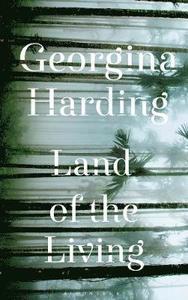Following the Battle of Kohima, Charlie was lost in the rainforest until rescued by some women from a tribe of head-hunters and nursed back to health in their village. Several weeks later, he was escorted to Hussey’s colonial outpost, a few days’ walk away. But now, married to Claire and expecting their first baby, he’s not sure he wants to resurrect the past. Claire certainly doesn’t: although resentful when her husband keeps his distance, she hasn’t been the best of listeners when he has tried to talk. When Hussey launches into a passionate defence of head-hunting, she takes herself off to bed.
At first the gap between husband and wife seems merely due to different levels of exposure to, and comfort with, diversity: it’s hard for an English rose to accept the merits her husband perceives in a “primitive” culture. And Charlie himself, even before leaving Asia, struggles to explain (p58):
already the story was beginning to change shape, the village becoming more distant and exotic, slipping between his words.
The gap’s widened by the trauma Charlie’s lived through; not so much in the village, but in the slaughter that brought him there. There’s an unacknowledged etiquette for bringing home tales of war (p41):
He had to tell it this way, didn’t he? Because that was what a chap did, wasn’t it, coming home, what chaps did who came home with this kind of story in them? Because he was Charlie, and that was the sort of person he was, at home, who made jokes and who made things matter-of-fact; the person she expected him to be, who must be matter-of-fact with her because she did not know that other man he might have been or might be inside.
Guilt makes up the third side of the wedge: the guilt of survival where others have died, along with the sharper guilt of being indirectly responsible with which the colonial administrator, Hussey, pollutes the peaceful post-war home. No wonder Claire removes herself and her unborn child from the room. But where will Charlie position himself in relation to these contradictory realities? Can there ever be a reconciliation between the domestic and war?
How do we live authentically in a world that is both beautiful and intensely cruel? How do we return to the ordinary when we’ve been taken closer to the edge than most? With my own abiding interest in these questions, along with the author’s gently lyrical prose, Land of the Living easily earns its place among this year’s favourite reads. Thanks to Bloomsbury for my review copy; Ros Ellis thought I might like it, and she was right!
For more of Georgina Harding’s writing, see my review of The Gun Room from two years ago this month. My short story “Habeas Corpus” about a photojournalist’s struggle to return to the land of the living after being kidnapped my newly-published short story collection, Becoming Someone. You can watch me read the opening here.
| |






















 RSS Feed
RSS Feed





















